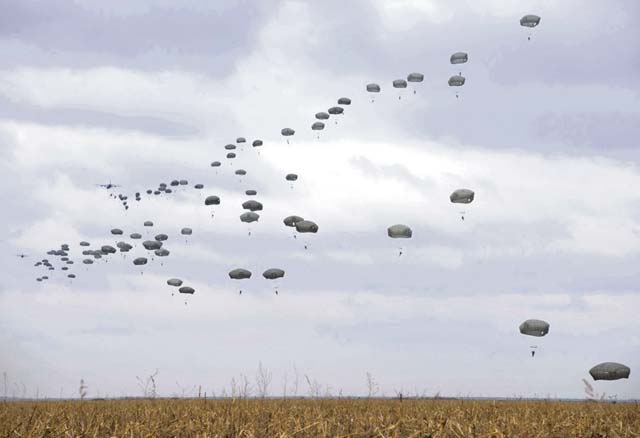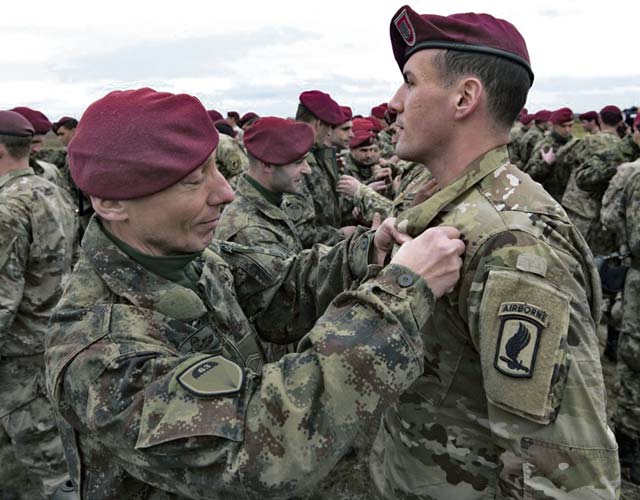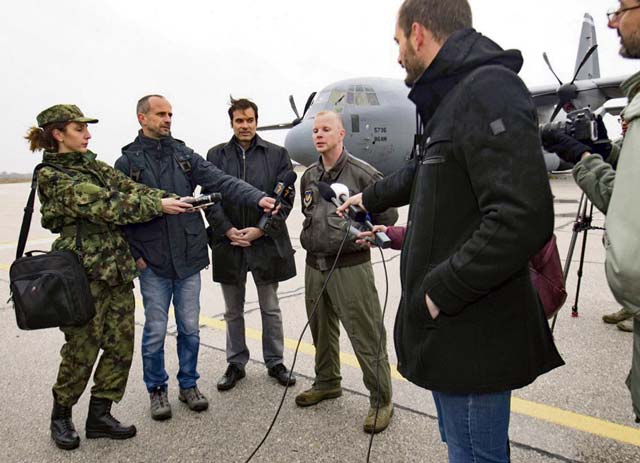
BATAJNICA AIRFIELD, Serbia — “This exercise is important because it builds the readiness of both our militaries,” said Lt. Gen. John Gronski, U.S. Army Europe deputy commanding general. “When you have a ready military a region can be more stable and secure.”
The Serbian government invited the U.S. to train with their forces in order to strengthen both countries’ emergency response capabilities, thereby helping secure regional security and peace.
Double Eagle developed from the U.S. and Serbia’s shared commitment to regional security and the importance of the Balkan region to that security.
Two C-130J Super Hercules from Ramstein Air Base’s 37th Airlift Squadron brought approximately 120 U.S. Army paratroopers assigned to the 173rd Airborne Brigade to Batajnica Airfield, Serbia, to train on jump procedures together. Serbia contributed 60 paratroopers. The two countries spent five days conducting multiple airborne insertions via the C-130Js from Nov. 13 to 17.
Gronski commented on the first jump the forces conducted together.
“I hear the exercise went really well yesterday,” Gronski said. “I know the soldiers certainly enjoyed being able to conduct an airborne insertion together and we call that a success.”
Working together isn’t only about two countries learning to perform together; it’s about connecting personally, professionally and tactically.
Teamwork provides the opportunity to build strong and strategic relationships. The U.S. and Serbia hope the bonds they build will help them create stronger, more capable forces who can find solutions together. That trust may be essential to ensuring global security.
In the spirit of partnership, U.S. forces kicked off Double Eagle by opening up a static display of one of the two C-130Js on Batajnica. Military representatives from a variety of countries, such as Bulgaria, Russia and Switzerland, as well as approximately 15 Serbian media representatives toured the aircraft.
U.S. Soldiers and Serbian jumpers conducted joint pre-jump training and Jumpmaster coordination together at the Stevica Jovanovic Barracks before they jumped together the next day.
The exercise wrapped up with a public airborne insertion event. Serbian and U.S. paratroopers parachuted onto Lisicji Jarak Airport in front of an audience including Serbian President Aleksandar Vucic, U.S. Ambassador to Serbia Kyle Scott, Serbian Minister of Defense Aleksandar Vulin, and representatives from all major Serbian media outlets.
“We have conducted military exercises in the past before this exercise, and we want to continue to strengthen the relationship between the United States and Serbia,” Gronski said.









